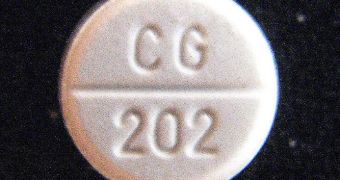Children, teens and adults who suffer from attention deficit hyperactivity disorder (ADHD) may be more creative than their peers who do not have the condition, say the results of a new scientific study.
While it's true that the disorder entails a number of challenges for both the sufferers and their family, this may be a clear case of seeing the silver lining in the clouds too. It could be that those who have the condition may be able to receive new ideas more openly.
This makes it easier for them to incorporate these new concepts into their own, and provides a solid foundation for creativity. Drawing on other things and ideas for inspiration is very common, and the more things you can relate to, the higher the chance of something positive coming out of it all.
In the new investigation, researchers looked at the number of creative achievement adult ADHD suffers had, in contrast to the same number derived from analyzing peers without the disorder.
Details of the research were published in the latest issue of the medical Journal of Personality and Individual Differences. The work was led by experts at the Eckerd College in St. Petersburg, Florida, PsychCentral reports.
“For the same reason that ADHD might create problems, like distraction, it can also allow an openness to new ideas,” explains ECF assistant professor of cognitive psychology Dr. Holly White.
“Not being completely focused on a task lets the mind make associations that might not have happened otherwise,” says the investigator, who was also the coauthor of the research paper.
During the study, which was conducted with University of Michigan expert Dr. Priti Shah, 30 healthy students and 30 ADHD sufferers were given a series of tests that assessed their creativity in 10 areas.
Consistently, the ADHD group came out first of the other one. Whereas people with the condition preferred brainstorming and generating ideas in group, those who did not suffer from it tended to spend their time refining and clarifying the problems at hand.
Currently, the condition is estimated to affect millions of people in the United States alone, and children suffering from it are usually medicated with drugs such as Ritalin and Adderal. It may be that such chemicals are not needed for the young generation after all.

 14 DAY TRIAL //
14 DAY TRIAL //